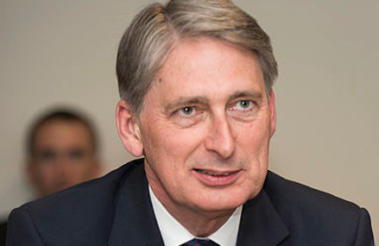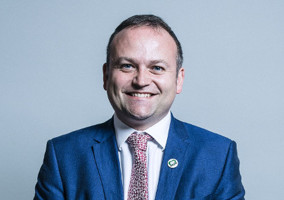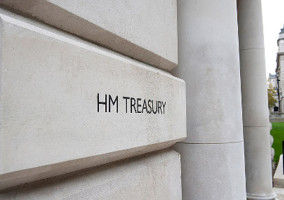Ahead of the Autumn Budget, Rob Preston summarises some of the charity sector’s key demands and looks at what the sector should prepare for this afternoon.
Online giving platforms charging fees on Gift Aid
This issue has been bubbling away for a few months. Last week the MP Neil Coyle wrote to JustGiving demanding it repay £500,000 to people who have paid fees on donations and on Saturday the Sun reported that donations platforms face a "crackdown on charging commission".
The Charity Tax Group (CTG) and the Institute of Fundraising (IoF) have called on the Treasury to address the issue of fundraising platforms charging fees on Gift Aid.
Daniel Fluskey, director of policy and external affairs at the IoF, said: “We want to avoid a policy which aims to protect Gift Aid, or impose a way of working for platforms, that might be well intended but could lead to disrupting the relationships between charities and platforms, or result in higher charges elsewhere.”
He also said the IoF had suggested the government establish a working group on the issue to help "review and think through potential options".
CTG has called on the government to consider facilitating “discussions between charities and fundraising platforms about improving the transparency and equity of fees when Gift Aid is claimed on donations collected by intermediaries, particularly in relation to emergency and disaster appeals”.
One-off VAT rebate
Military charities are hoping for a VAT rebate on sales of commemorative statues will be announced after the defence minister backed the campaign.
Defence minister Tobias Ellwood has called for a military charity’s campaign to be VAT exempt after learning that sales of commemorative silhouettes were subject to the tax. Military charity There But Not There is selling silhouettes of World War One soldiers around the country to mark the 100th anniversary of the war’s end. The charity hopes to raise £15m and will split this between six charities. It expects to have to pay around £3m in VAT.
One-off VAT rebates on particular issues, such as fuel for air ambulances, have been announced in the Budget in the past.
Dormant assets
The sector has been waiting a while for an announcement about how the government plans to use up to £2bn in dormant assets to support the sector.
Charity sector leaders from organisations including NCVO, Acevo, Navca and the Small Charities Coalition wrote to chancellor Philip Hammond to build on the “vision” set out in the Civil Society Strategy by taking “substantive action” on dormant assets.
The letter said charities operate in an “increasingly tough environment” and that “severe pressures on local authority-funding” are “hitting the people and places facing disadvantage the hardest” and that the sector needs sufficient resources to “continue to help to build a country that works for everyone”.
“The government’s Civil Society Strategy has set out a vision for strengthening the capabilities, infrastructure and resources within communities, recognising the economic, civic and social capital that is required for communities to thrive,” the letter said.
It also suggested using the £475m held by the National Fund in a similar way and directed the chancellor to an earlier proposal for a Community Wealth Fund.
Replace EU funding with grants
The charity leaders that wrote to Hammond said that the government had a “once in a generation opportunity” to build on the European Social Fund by ring-fencing a similar amount from the newly proposed UK Shared Prosperity Fund.
“ESF funding provides important investment for the UK in education and training and employment support, targeting vulnerable groups who often fall through the gaps of mainstream public services. This includes people with disabilities and health conditions, people facing multiple or complex barriers to employment, and ex-offenders,” they said.
Tax reform
Specialist insurer Ecclesiastical and Charity Finance Group have called for an Insurance Premium Tax (IPT) exemption for charities.
While IPT is a tax on general insurance premiums, such as home, car and travel insurance, the vast majority of charities, especially those who own property and have significant operational costs, are also impacted.
Angus Roy, Ecclesiastical’s charity director, said: “The average charity is paying £300 in IPT on top of their insurance premiums.
“The government has long recognised that charities should be treated differently to commercial businesses by granting reductions and exemptions from other taxes, including VAT, business rate relief and Gift Aid, so it seems unfair that IPT is an exception to that rule.”
Meanwhile, the Institute of Fundraising wrote to Hammond, urging him to reduce the cost of irrecoverable VAT on fundraising activities and materials, and across the wider charitable sector.
It also called on the government to promote and increase legacy gifts by introducing a VAT exemption for all wills that include a charitable gift.
And it urged a review the operation of corporate Gift Aid to ensure it works best for charities and businesses.
Charity Commission funding
The Treasury announced £5m of transition funding for the Charity Commission at the end of 2017, but it is unclear what the long term solution to the regulator’s funding shortfall is.
The Director of Social Change (DSC) called on the Treasury to “support a new funding settlement for the government body that is so critical to supporting it”.
One option the regulator has floated is the idea of charging the largest charities in the sector, but the DSC is not in favour of this.
Training funding
The IoF has asked the Treasury to invest in a comprehensive package of support to develop fundraising skills and capacity of small charities.
It said: “Releasing additional funding for this initiative will significantly increase the sustainability and impact of smaller charities and their ability to have a positive impact in the long-term.”
Universal credit
The Child Poverty Action Group co-ordinated a letter from a number of poverty charities calling for urgent changes to Universal Credit.
It said: “For Universal Credit to be fit for purpose there needs to be more flexibility over payments so as to resolve important issues caused by a single, monthly, household payment, including problems with budgeting, paying rent and the risk of financial abuse.”
'Fix the economy'
Social Enterprise UK has co-ordinated a letter from 130 social enterprise leaders to the chancellor accusing the government of ignoring the "broken economy" and using Brexit uncertainty as "an excuse to do nothing".
Peter Holbrook, chief executive, Social Enterprise UK said: “Brexit is understandably dominating debate, but leaving the EU alone will not solve the problems facing with our economy and society. That requires action by the government to create an economy that truly works for everyone.
“We are not asking the chancellor to change our economy overnight, but simply to make the first steps in a journey to back businesses which are contributing positively to society, rather than rewarding those which are making the situation worse. The tax system is sending the wrong signals to business and rewards bad practice. A comprehensive root and branch review is long overdue.”
Related articles











